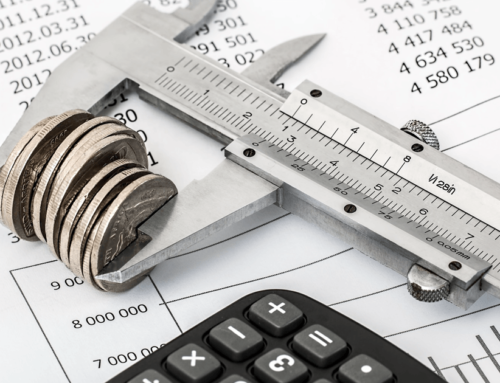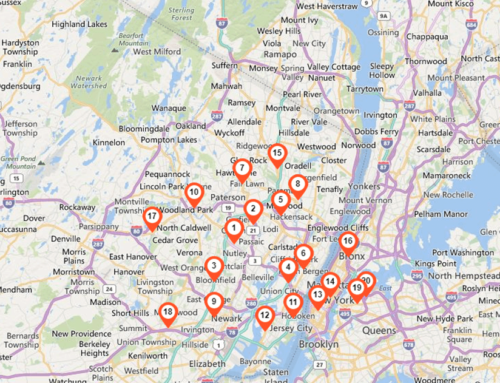Are you a beginner with house flipping? When I was taking my first steps as a new house flipper, the following questions always crossed my mind:
- Where do I begin?
- How much should I invest?
- Do I have enough funds to start?
- Where can I learn how to use QuickBooks for flipping?
The more questions that popped up, the more overwhelmed I felt.
I used to see all those house flipping shows on television; they make it look so simple, quick, and easily profitable. It was impossible not to ask myself, “Why am I am struggling when it’s so easy for others?” Well, with several ups and downs and with sheer experience here’s what I formulated in easy steps for you:
- Returns from Investment
Remember that each purchase is going to make you money in the long-run if you manage your choices correctly. It is crucial to buy your properties at the right price so that you can make a decent profit. Purchase the worst house on the best street and fix it up; you need something to which you can add value so you can sell it for more than the price at which you bought it.
- Cost Estimates for Investment
Be cautious when it comes to estimating your costs–always add 15% more. Before you make any drastic purchase decisions, you need to know the costs of the flip as well as the timing of the repairs. Make sure you include the prices of materials, labor, tools, insurance, taxes, mortgage, and other marketing and real estate costs that may affect you. This will give you a more accurate perspective of the effects of the decisions you might make. Keep in mind that over-improvement may not pay off; make your property look nice, but do not spend too much on it.
- Determine Self Financial Resources
Choose which financial resources you are going to use. Are you willing to finance or would you instead start with savings? Funding will allow you to leverage more projects by making smaller down payments; on the other hand, though, buying a property with your savings will create a profit without any borrowing fees (A.K.A. loan costs). It all comes down to how you wish to balance your finances as you get started in the industry. Just do your calculations and weigh your pros and cons–then you can easily make the decision that is right for you.
- Start with a Plan
Before you dive headfirst into any major investments in real estate, take a step back and begin formulating a business plan. Take it all one step at a time so that you can maintain your footing as you maneuver through the industry. Define your goal: do you want to begin with a smaller, safer investment to reduce potential risks? Know what you want to do before you do it.
- Complete a Market Analysis
Go ahead and run a market analysis to help you determine essential details about your strategy:
- Where do you wish to invest?
- Which properties and neighborhoods would generate the most profit on your investment?
- What are the price trends in the area?
- Are there any future developments planned?
Make sure you view the recent comps for the areas in which you are interested; this is a very crucial step for getting started in the house flipping business. The market analysis will help you choose the right properties to purchase.
- Hire a Contractor
To successfully flip and/or sell a house, finding reliable, skilled contractors is essential (and not as easy as it seems). It is always helpful to ask for references from projects similar to yours to see if you can find a contractor with whom you can work or if you are handy and skilled when it comes to home repairs, you can consider doing the project yourself. In this case, you should calculate the timeframe and expenses of doing the work yourself versus the cost of a contractor for the job (Remember: time is money). Decide what would benefit your real estate investment the most.
- Hire a Good Realtor
Hiring a high-quality realtor will ensure that you will sell the property quickly and at the end of the day, that is what matters the most. Time is money, so each day your house remains unsold, you lose more and more money. The sooner you sell, the better; you can get back to flipping other properties more quickly, and thus generate a more significant profit in a shorter amount of time.
Bonus Tip: Investing is easy as long as you put sweat, time, and money into it. Everyone has a “get-rich-quick” scheme. One crucial point all the real estate gurus consistently emphasize is to track your money, get your bookkeeping updated every day, get your accounting and financial reports accurate from day one, ditch those spreadsheets, and use high-quality software. I personally recommend QuickBooks; find all the resources you need in order to use QuickBooks for flipping real estate. By the time you surf the internet, ask questions in the community and forums, view videos on YouTube, you have spent way too much time and money. Instead, relocate that energy toward a solution already served to you on a silver platter, and invest that saved time into closing a deal.
Now that you know the critical steps in entering the house flipping business, for what are you waiting? By following these tips, you can and will find yourself more prosperous and more experienced in the industry. House flipping may not be easy, but you can get better at it with time; soon enough, you will be generating massive amounts of profit in short amounts of time. Get yourself out there and start flipping some houses!







Leave A Comment